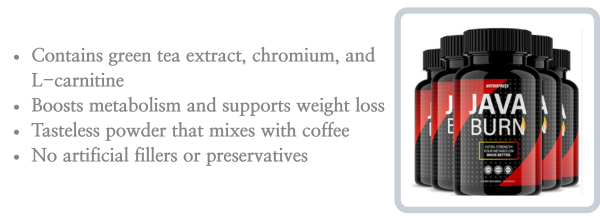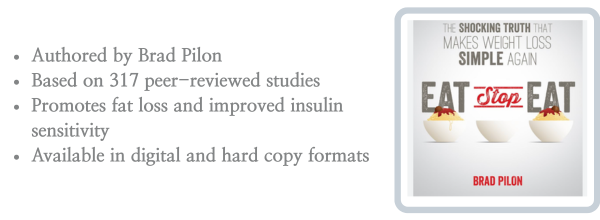
It feels like nearly everyone you talk to has a step counter or smart watch strapped on, tracking every move and calorie, right? Tracking your activity is easier than ever before—just a glance at your wrist and you’ve got numbers telling you how much you moved and (roughly) how many calories you supposedly torched. It’s convenient, yeah, but is all that data actually as reliable as we hope? If you’re relying on it to keep score for your fitness goals, maybe it’s worth a closer look. You’ve seen folks everywhere—at the gym, on the street, even in the grocery store—checking their wrists and comparing “calories burned” as if it’s gospel. But have you ever wondered what’s really behind those numbers your watch spits out? This article digs into how those calorie counters actually work, why people obsess over them, and whether you can really trust them when planning your next meal (or dessert, let’s be real). Spoiler: the truth is equal parts fascinating and kind of frustrating. Turns out, your watch is helpful…but definitely not the final word.

You’ve seen folks everywhere—at the gym, on the street, even in the grocery store—checking their wrists and comparing “calories burned” as if it’s gospel. But have you ever wondered what’s really behind those numbers your watch spits out? This article digs into how those calorie counters actually work, why people obsess over them, and whether you can really trust them when planning your next meal (or dessert, let’s be real). Spoiler: the truth is equal parts fascinating and kind of frustrating. Turns out, your watch is helpful…but definitely not the final word.
It feels like nearly everyone you talk to has a step counter or smart watch strapped on, tracking every move and calorie, right? Tracking your activity is easier than ever before—just a glance at your wrist and you’ve got numbers telling you how much you moved and (roughly) how many calories you supposedly torched. It’s convenient, yeah, but is all that data actually as reliable as we hope? If you’re relying on it to keep score for your fitness goals, maybe it’s worth a closer look.
Okay, confession time: I’ve finished workouts and 100% doubted my watch. Sometimes, it cheers me on for a dog walk like I just climbed a mountain. One day it credited me for hundreds of calories after literally chasing my dog for a missing tennis ball—are you kidding? Either I’m sneaking in marathon training by accident, or these watches are padding my stats.
So, how do these wrist gadgets come up with their numbers? From what I understand, they use a weirdly clever mix of gadgets inside—there’s a motion sensor (fancy word: accelerometer) that’s tracking every arm swing or bounce, plus your heart rate monitor trying to figure out how hard you’re working. Then, the watch guesses, “Okay, based on this much movement and this kind of heart rate, here’s a decent estimate of calories burned.” It’s kind of like if your friend was watching and guessing how much effort you put in, only it’s silicon and code instead of gossip.
What really hooks people, though, is that constant feedback. Seeing those numbers ramp up after every little errand or jog—honestly, it’s weirdly thrilling. Suddenly, taking the stairs isn’t just “ugh, the elevator’s broken,” it’s a mini victory you can measure. I know people who say their watch is half the reason they bother sticking to a routine. The numbers can be oddly motivating, even if you know they’re just an estimate.
Here’s the interesting part—these calorie estimates aren’t totally random. When you set up your watch, it wants to know all about you: your age, height, weight, gender. That way, it can tweak its calculations for you and not just hand out one-size-fits-all digits. Honestly, I appreciate that the data is at least trying to be about *me* specifically.
That said, there’s no sugarcoating it: these things mess up all the time. You read stories and even studies where trackers can swing wildly—sometimes overestimating your burnt calories by 20-25%, sometimes forgetting to give you credit at all. It’s wild. Maybe your run is measured almost perfectly, but your weight lifting session? My own watch gives me a pitiful tally, but lets me rack up “bonus” calories for leisurely biking. One friend even joked her tracker must think she’s superhuman when she shops for groceries.
Apparently, researchers at Stanford once built a better calorie tracker with just a couple cheap sensors and some smarter calculations—so, the big companies are definitely not at the finish line yet. I guess if there’s a takeaway, it’s just: don’t obsess about the *exact* number. If you’re seeing patterns and trends—say, you’re more active this week, or you’re steadily burning more calories—that’s meaningful. The day-to-day details? They’re a little wobbly.
And honestly, chasing a number isn’t the whole point. Being healthy comes down to how you feel: stronger, more energetic, able to keep up with life. Use the numbers as a guide, not gospel. Don’t let a wristwatch decide whether you celebrate.
Chasing those calorie numbers can feel weirdly satisfying—but at the end of the day, showing up and doing the work matters more than any gadget’s readout. Wear your watch, enjoy seeing your progress, but if the numbers swing high or low, don’t sweat it. You’re still lapping everyone who’s sitting still.

Chasing those calorie numbers can feel weirdly satisfying—but at the end of the day, showing up and doing the work matters more than any gadget’s readout. Wear your watch, enjoy seeing your progress, but if the numbers swing high or low, don’t sweat it. You’re still lapping everyone who’s sitting still.
sources
- ELI5 how do smart watches and fitness tracker measure the calories …
- How do Smartwatches Measure Calories | Tech-Knowledge
- Can Smartwatches Accurately Track Calories? – YouTube
Today’s related searches: how to calibrate smart watch calories, improve smart watch calorie accuracy, smartwatch calorie tracking for weight loss, adjust personal data for fitness trackers, compare calorie burn between devices
Each offers exceptional value and is designed to support your health in meaningful ways


